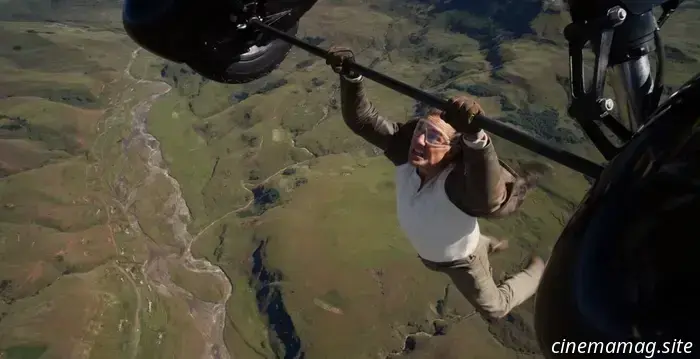
Mission: Impossible – The Final Reckoning Review: A Flawed but Intense Conclusion
“I’m going to miss being disreputable,” Ving Rhames’ Luther Stickell complains to Tom Cruise’s now-legendary superspy after their first of many daunting missions. It’s 1996, and these audacious newcomers are sipping beer outside a pub, ready to part ways forever. “Well, Luther,” Ethan responds with a smirk, “if it helps, I’ll always see you that way.” It’s a charming, quiet moment that plants the genuine warmth that makes Mission: Impossible stand the test of time.
That endurance, longevity, and the ever-expanding scope they face both uplift and challenge Mission: Impossible – The Final Reckoning. Under the direction of Chris McQuarrie and with co-writer Erik Jendersen, the script serves as a culmination to this monumental action franchise. It also tries to present itself as a standalone film, accessible to any viewer who is (for some reason) new to the series in its eighth, presumably final installment. One can empathize; this challenge is certainly McQuarrie’s most insurmountable mission. The critical mass that Mission: Impossible has achieved causes The Final Reckoning to struggle and sway under its significant burdens—for a time. While commendably avoiding the need for preparation and homework from the audience (requirements for most current blockbuster sequels), standing on its own necessitates resetting the narrative, not just from the conclusion of Dead Reckoning, Part One, but from the entire 30 years prior. The first hour of The Final Reckoning serves as both a recap and a continuation. Its key visual distinction is that it’s the only Mission film to include flashbacks to previous installments, a delicate balancing act handled expertly by editor Eddie Hamilton.
Numerous callbacks, retcons, and connections abound. Some feel clumsy and forced; others are elegant and meaningful. Rolf Saxon’s return as the beleaguered CIA technician William Donloe from the first film adds a surprising layer of tenderness to the brooding atmosphere of Final Reckoning, while the reappearance of a certain MacGuffin serves as a clever thread haunting Ethan Hunt, whose most emotional decisions come at a high cost. This approach is a guide for newcomers but may feel redundant for longtime fans. As we reunite with Ethan Hunt, he finally buckles under the weight of being Ethan Hunt. His desperate appeals to everyone in the chain of command for their trust to eliminate his catastrophic AI adversary, “The Entity,” involves navigating a lot of bureaucratic red tape. The resulting structure of the film, though never dull, feels uneven. Yet that plea for trust is justified: once The Final Reckoning triggers its action, its peaks far exceed its lows, and the highs are unmatched.
From the depths of the North Atlantic to the skies over South Africa, the second half of the film sharpens its focus as it shifts into “hold my beer” territory. Here, McQuarrie and Cruise demonstrate their deep reverence for cinema. Though they might deny employing intentional homage, they evoke films like the 1968 classic Ice Station Zebra, featuring a charismatic submarine captain played by Tramell Tillman. The striking biplane sequence is an elevated version of the breathtaking wing-walking scene in George Roy Hill’s The Great Waldo Pepper. There’s even a splash of Porco Rosso with Esai Morales’ exuberant villainy. All of this unfolds against a backdrop of nuclear anxiety: a nod to McQuarrie’s own version of Fail Safe, starring Angela Bassett. The compelling combination of these key action sequences—a deep dive into a doomed submarine as it prepares to sink, and a high-speed plane chase at the last moment—serves as a pinnacle for this series and delivers some of the most exhilarating action you’re likely to witness on the big screen.
While these varied influences and styles may not be as cohesive as those found in earlier entries, the instant-to-instant shifts between humor and suspense are a pleasure to experience. The Final Reckoning's overall impact may not perfectly reflect its individual components, but where the film falters technically, it excels in visceral excitement, supported by the comforting realization that it's simply enjoyable to be with our friends in the IMF (even if they are overwhelmed). Finding it difficult to part ways, there’s a special quality to each of The Final Reckoning’s 169 minutes. Mission: Impossible, at its core, is a film education wrapped in grand entertainment. It has distinguished itself from its peers by evolving, embracing risks, and nurturing a respect for the medium and its history. How many other franchises would inspire a curious viewer to explore films like Topkapi, Hard Boiled, Safety Last!, and What’s Up, Doc?
Ethan, Luther, Benji, and the IMF may not linger to be disreputable, but I will always regard them that way.
Mission: Impossible – The Final Reckoning hits theaters on May 23
Other articles
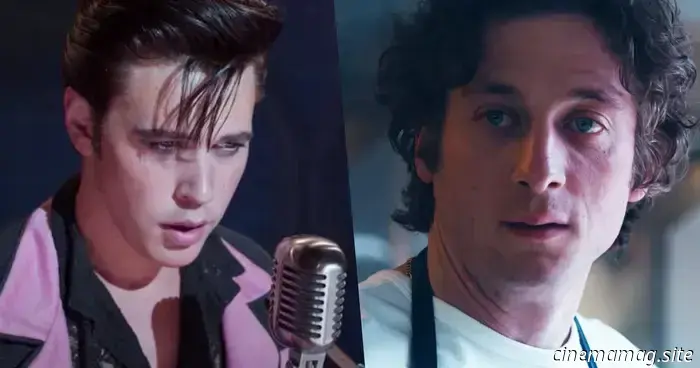 Jeremy Allen White and Austin Butler will portray adversaries.
Jeremy Allen White (The Bear) and Austin Butler (Elvis) are cast in Henry Dunham’s (The Standoff at Sparrow Creek) crime thriller Enemies. The story of Enemies revolves around a tenacious detective and a notorious contract assassin entangled in a perilous game of cat and mouse. A24 is producing the film, based on a script co-written by Dunham and Ari […].
Jeremy Allen White and Austin Butler will portray adversaries.
Jeremy Allen White (The Bear) and Austin Butler (Elvis) are cast in Henry Dunham’s (The Standoff at Sparrow Creek) crime thriller Enemies. The story of Enemies revolves around a tenacious detective and a notorious contract assassin entangled in a perilous game of cat and mouse. A24 is producing the film, based on a script co-written by Dunham and Ari […].
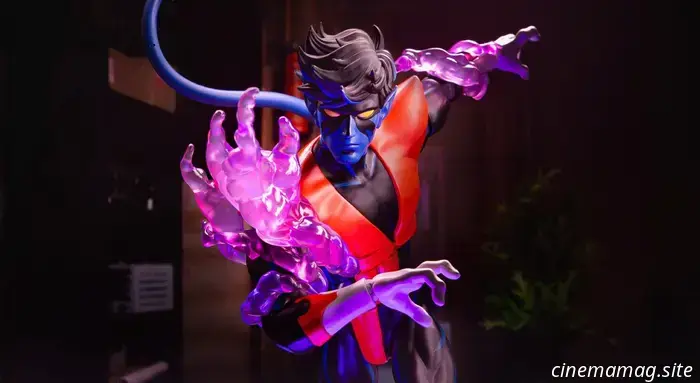 Nightcrawler becomes part of Mondo's X-Men '97 sixth scale action figure lineup.
Mondo has revealed the latest figure in its X-Men ’97 collection: a sixth scale Nightcrawler. Limited to 1,000 units, it is now available for pre-order at a price of $245; take a look here… The latest figure in our X-MEN ‘97 1/6 scale series is the beloved teleporting acrobat, Kurt Wagner! It comes with […]
Nightcrawler becomes part of Mondo's X-Men '97 sixth scale action figure lineup.
Mondo has revealed the latest figure in its X-Men ’97 collection: a sixth scale Nightcrawler. Limited to 1,000 units, it is now available for pre-order at a price of $245; take a look here… The latest figure in our X-MEN ‘97 1/6 scale series is the beloved teleporting acrobat, Kurt Wagner! It comes with […]
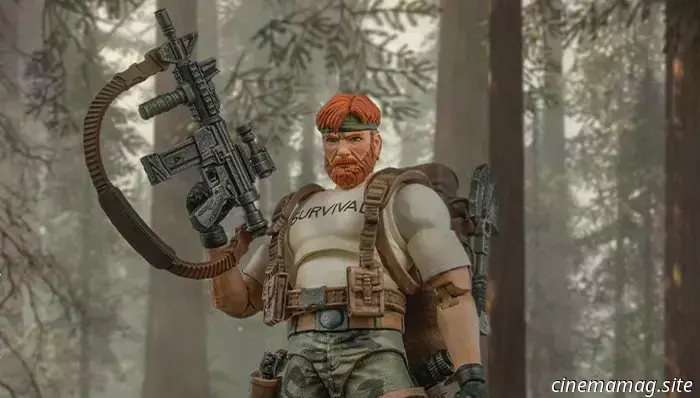 Outback is now part of Hiya Toys' G.I. Joe Exquisite Mini Series action figure lineup.
Hiya Toys has officially revealed that Stuart ‘Outback’ Selkirk will be introduced in its G.I. Joe Exquisite Mini Series, featuring a new 1/18th scale action figure for the Joes' survival expert. The figure is slated for shipment in Q2 2016 and is currently available for pre-order at a price of $24.99; take a look at the official promotional images and details […]
Outback is now part of Hiya Toys' G.I. Joe Exquisite Mini Series action figure lineup.
Hiya Toys has officially revealed that Stuart ‘Outback’ Selkirk will be introduced in its G.I. Joe Exquisite Mini Series, featuring a new 1/18th scale action figure for the Joes' survival expert. The figure is slated for shipment in Q2 2016 and is currently available for pre-order at a price of $24.99; take a look at the official promotional images and details […]
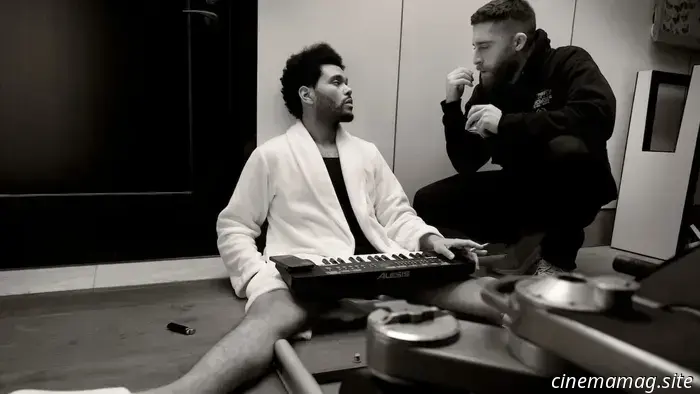 The Weeknd, Trey Edward Shults, and Jenna Ortega Discuss Discovering the Essence of Hurry Up Tomorrow.
Before collaborating with The Weeknd and Jenna Ortega on their new film, Hurry Up Tomorrow director Trey Edward Shults was feeling emotionally drained.
The Weeknd, Trey Edward Shults, and Jenna Ortega Discuss Discovering the Essence of Hurry Up Tomorrow.
Before collaborating with The Weeknd and Jenna Ortega on their new film, Hurry Up Tomorrow director Trey Edward Shults was feeling emotionally drained.
-Blu-ray-Review.jpg)
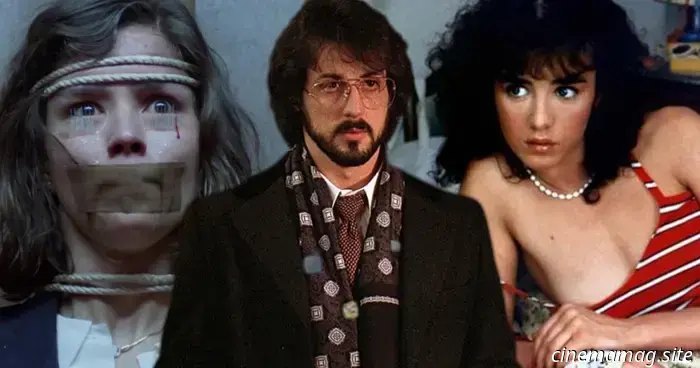
Mission: Impossible – The Final Reckoning Review: A Flawed but Intense Conclusion
“I’m going to miss the thrill of being notorious,” Ving Rhames’ Luther Stickell complains to Tom Cruise's legendary superspy following their initial impossible mission. It’s 1996, and these bold newcomers are enjoying beer outside a pub, getting ready to go their separate ways for good. “Don’t worry, Luther,” Ethan replies with a grin, “if it helps at all, I’ll always...
